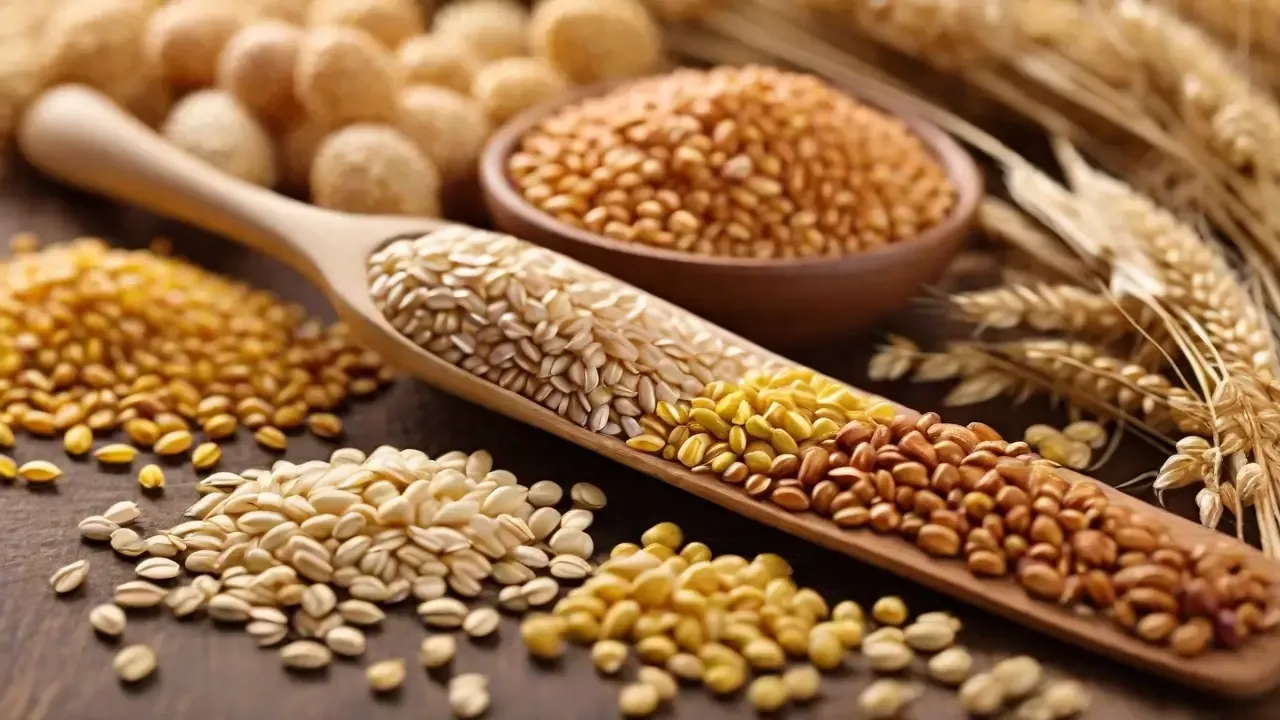Grain:
Welcome to the fascinating realm of grains, where nature's bountiful offerings take center stage. Grains have been an integral part of human civilization for centuries, providing sustenance, energy, and an array of essential nutrients. Whether it's the hearty whole grains or the refined grains used to create some of our favorite treats, these tiny kernels pack a powerful punch. In this article, we delve into the world of grains, exploring their types, nutritional benefits, and the role they play in our well-being.
 |
| Grains |
Table of Contents
- Types of Grains
- Nutritional Value
- Health Benefits
- Cooking Tips
- Grains and Diet
- Common Myths
- Questions and Answers
- Conclusion
Types of Grains
Grains come in a diverse range, each with its unique flavor, texture, and nutritional profile. Some common types of grains include:
- Rice
- Wheat
- Oats
- Corn
- Barley
- Quinoa
- Millet
- Buckwheat
Nutritional Value
Grains are an excellent source of essential nutrients, including complex carbohydrates, dietary fiber, vitamins, and minerals. They are a staple food group that provides sustained energy and contributes to overall well-being. Whole grains, in particular, are packed with nutrients as they retain their bran and germ layers.
Key nutrients found in grains include:
- Fiber: Supports digestion and helps maintain a healthy weight.
- B Vitamins: Essential for metabolism and energy production.
- Iron: Important for oxygen transport in the body.
- Zinc: Supports immune function and wound healing.
Health Benefits
Integrating grains into your diet can yield a myriad of health benefits:
- Heart Health: Whole grains can lower the risk of heart disease by reducing cholesterol levels.
- Weight Management: The fiber in grains promotes satiety and helps control appetite.
- Digestive Health: Dietary fiber aids digestion and prevents constipation.
- Diabetes Management: Grains with a low glycemic index help regulate blood sugar levels.
Cooking Tips
Preparing grains is a simple and enjoyable process. Here are some cooking tips:
- Use the right water-to-grain ratio for optimal texture.
- Rinse quinoa and other grains to remove bitterness.
- Experiment with different cooking methods, such as boiling, steaming, or baking.
Grains and Diet
Incorporating grains into your diet is effortless and delicious:
- Start your day with a bowl of oatmeal topped with fruits and nuts.
- Replace refined grains with whole grains in your meals for added nutrients.
- Snack on air-popped popcorn or whole grain crackers.
Common Myths
Let's dispel some misconceptions about grains:
- Myth: Grains are only carbohydrates and provide no real nutrition.
Fact: Grains offer a wide range of nutrients vital for health. - Myth: Grains should be avoided in a weight loss diet.
Fact: Whole grains can support weight loss by promoting fullness.
Questions and Answers
Are all grains equally nutritious?
No, the nutritional content varies among different grains. Whole grains generally offer more nutrients compared to refined grains.
Can grains be part of a gluten-free diet?
Yes, there are gluten-free grains like rice, quinoa, and oats that can be safely consumed by individuals with gluten sensitivity.
Do grains contribute to high blood sugar?
Whole grains have a lower glycemic index, which means they have a slower impact on blood sugar compared to refined grains.
Are ancient grains healthier?
Ancient grains like amaranth and farro often retain more nutrients due to minimal processing.
How do I store grains properly?
Store grains in a cool, dry place in airtight containers to prevent moisture and pests.
Conclusion
Grains are undoubtedly a powerhouse of nutrition, offering a wide array of benefits for overall health. Whether you choose the comforting embrace of a bowl of brown rice or the versatile quinoa salad, grains provide us with sustenance, taste, and wellness. By understanding the different types of grains, their nutritional value, and the role they play in a balanced diet, you can make informed choices that contribute to your health journey. So, let grains be your culinary companions as you embark on a flavorful and nutritious adventure.


